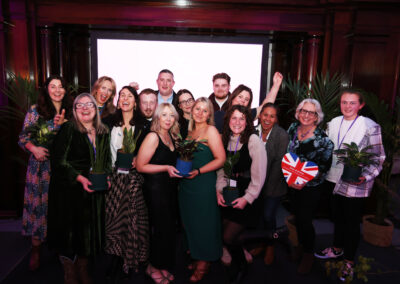This week the latest Intergovernmental Panel on Climate Change (IPCC) sixth assessment report was released, revealing that temperatures are now projected to rise by more than 1.5C above pre-industrial levels, breaching the ambition of the 2015 Paris Climate Agreement. The report is the first major scientific climate review since 2013. Its release comes less than three months before the key climate summit COP26 in Glasgow this November.
The report was prepared by 234 scientists from across 66 countries. It clearly highlights that human influence has warmed the global climate at a rate unprecedented in the last 2,000 years.
Code red for humanity
The landmark study warns of increasingly frequent and extreme droughts, flooding and heatwaves, as well as reductions in Artic sea ice, all of which are linked strongly to human influence.
The UN Secretary-General António Guterres said report was nothing less than “a code red for humanity. The alarm bells are deafening, and the evidence is irrefutable”. He noted that the internationally-agreed threshold of 1.5 degrees above pre-industrial levels of global heating was “perilously close. We are at imminent risk of hitting 1.5 degrees in the near term. The only way to prevent exceeding this threshold, is by urgently stepping up our efforts, and pursuing the most ambitious path.
Echoing the scientists’ findings, the UN Chief said: “If we combine forces now, we can avert climate catastrophe. But, as today’s report makes clear, there is no time for delay and no room for excuses. I count on government leaders and all stakeholders to ensure COP26 is a success.“
But scientists say a catastrophe can be avoided if the world acts fast. Strong and sustained reductions in emissions of carbon dioxide (CO2) and other greenhouse gases are needed! They would improve air quality better, and in 20 – 30 years could stabilise global temperatures. The UN chief in a detailed reaction to the report, said that solutions were clear, “if we respond to this crisis with solidarity and courage”.
We must act decisively now, to keep 1.5 alive
The IPCC scientists warn global warming of 2°C will be exceeded during the 21st century based on the current projection. Unless rapid and deep reductions in CO2 and other greenhouse gas emissions occur in the coming decades, achieving the goals of the 2015 Paris Agreement “will be beyond reach”.
The report details that 1.5C will be reached by 2040 in all scenarios. If emissions aren’t dramatically reduced in the next few years, this will happen even earlier.
This was predicted in 2018 in the IPCC’s special report on 1.5C and now this latest study confirms it.
So we are in control, we all have a role to play in reducing the emissions. If we can cut global emissions in half by 2030 and reach net zero by the middle of this century, the scientists believe that we can halt and possibly reverse the rise in temperatures. But we must act now!
The time to act is now!
We all have a role to play, both in our personal and professional lives. Reducing your carbon emissions must be a priority, for you, your business and our planet.
If you haven’t already, you need to start by calculating your current carbon emission, create a reduction plan and offset any carbon that you can’t reduce. If it all feels a bit too much, or you don’t know where to start, please get in touch.
Businesses in the wedding industry can make a really big impact by not only reducing business emissions, but also encouraging couples to be more conscious, and aware of the ways that they can reduce their impact. There are approx. 278,599 a year, however this year, due to the postponed weddings, in 2021 this is estimated to increase to be 550,000+. We know that the average wedding emits 14,500 kgCO2eq (or 14.5 tons kgCO2eq), which at least half could be reduced by making sensible, considered choices. That is a potential saving of 3,985,500 tons CO2 which is the equivalent to taking 866,847 cars off the road for a year!² Remaining emissions could then be offset by the couple, which, based on the average wedding, would cost in the region of £500-£700.
As part of our membership we focus on different sustainability topics each month. In July we drilled deep into climate change and carbon emissions and what it means for our industry and businesses.
We’re committed to making the wedding industry more sustainable
Since this report has been published in months leading up to the COP26 global summit, it’s an opportunity to build on the momentum. We will be asking Government to set out clear targets for businesses across the country, and clearly identify how it will support businesses to achieve them.
Sources
¹ – Estimates based on research by UK Wedding Taskforce
² – Calculation based on data fromand EPA.


